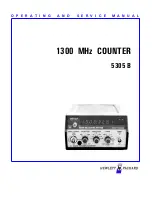
SCH2 Technical Manual TSP016.doc Issue 3.0 – January 2005
Money Controls 2005. All rights reserved.
Page 38 of 61
Header 172: Emergency stop
Transmitted data :
<none>
Received data :
[ payout coins remaining ]
If this command is sent during a payout then the motor is stopped immediately as a
precursor to power being lost. The returned byte counter should indicate the remaining coins
to be paid out.
The effect on the ‘Request hopper status’ command is as follows…
[ payout coins remaining ]
Ö
Cleared to ZERO
[ last payout : coins paid ]
Ö
Coins paid prior to stopping
[ last payout : coins unpaid ]
Ö
Coins unpaid prior to stopping
The ‘Emergency stop’ command produces a similar action to a software reset when the
motor is running. This means that the hopper will need to be re-initialised ( PIN number,
enable etc. ) prior to dispensing further coins.
When the motor is not running, this command returns the [ payout coins remaining ] value
without performing a reset.
Header 171: Request hopper coin
Transmitted data :
<none>
Received data :
6 x ASCII chars
This command returns an ASCII string consisting of 6 characters. These are stored in the NV
Memory.
Coin names are returned as [ C ] [ C ] [ V ] [ V ] [ V ] [ I ] - refer to the ccTalk generic
specification for an explanation of the format.
The ‘unprogrammed’ state of the coin name may typically be 6 x ASCII code 45
( ------ ) or 6 x ASCII code 0.
Note : There is no facility currently in production software to program in the name of the coin
that will be dispensed. The coins that can be dispensed from a hopper are subject to the
physical limitations of the disc / bed assembly rather than any software-controlled
parameters. The machine manufacturers will be at liberty to program in their own coin labels
using the ‘Write data block’ command.
Summary of Contents for SCH2
Page 8: ......




































